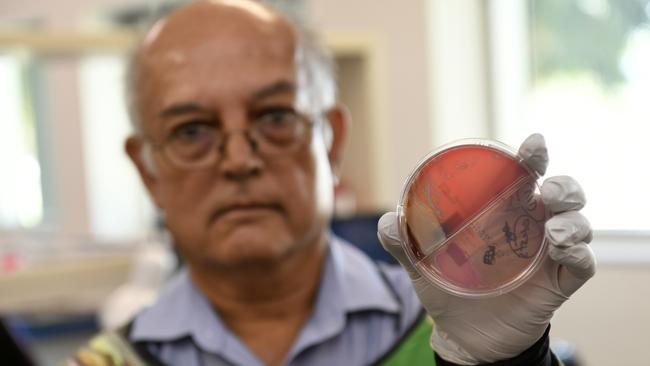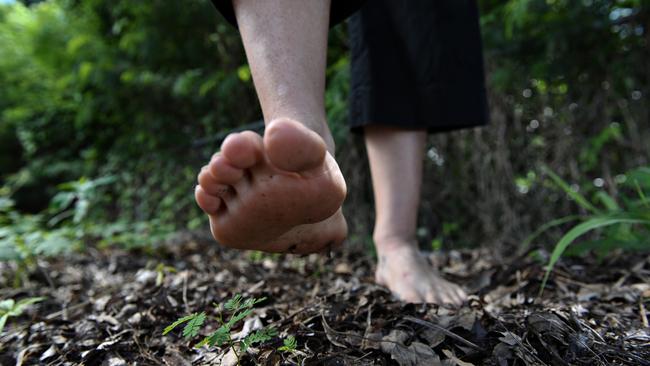Melioidosis: Warning after soil-borne disease kills NQ man amid case spike
A man has died after contracting the deadly soil-borne disease melioidosis, which has taken hold in North Queensland, sparking urgent health warnings from concerned authorities.

Townsville
Don't miss out on the headlines from Townsville. Followed categories will be added to My News.
A man has died after contracting the deadly soil-borne disease melioidosis, which has taken hold in North Queensland, sparking urgent health warnings from concerned authorities.
The Townsville Hospital and Health Service has warned NQ residents to take precautions against melioidosis, with 43 cases, including one death, already reported this wet season.
Melioidosis is an infection caused by a bacterial germ that lives in the soil, particularly in the tropical north of Australia.
The disease is usually contracted when broken skin comes into contact with contaminated soil or water and presents as either severe pneumonia or septicaemia (blood poisoning).
Clinical microbiologist Dr Robert Norton said infections are most common during the NQ wet season, from November to March.
“With the volume of rain we’ve been getting over the last month, we’ve certainly seen quite a few cases,” he said.
“Melioidosis is caused by a particular type of bug that is found in the soil, and heavy rain seems to bring it up in the layers of soil.
“It can also enter the body when you breath in dust and droplets, or when you come into contact with contaminated water.

“The problem with this disease is that it has a very high mortality rate compared to other infectious diseases.”
He said 10-15 per cent of infections are fatal, even with best-practice medical care.
“Certain people are at higher risk, diabetics, people who drink excessive alcohol and people who are immunosuppressed possibly due to cancer treatment,” he said.
Dr Norton urged those who were at risk of serious illness to take precautions to avoid infection this wet season.
“Try not to work outside if it’s raining, control your diabetes, and try to reduce your alcohol intake,” he said.
“When you go outside, wear protective footwear and gloves, wash your skin thoroughly after exposure to soil or muddy water, and wear a mask if you’re using a hose or high-pressure cleaner around soil.
“If you are immunosuppressed and you develop a chest infection or fever, it’s important to seek medical assistance.”
Animals can also develop the disease but cannot transmit it to humans.
Queenslanders can learn more about melioidosis by calling 13 HEALTH (13 43 25 84).
Originally published as Melioidosis: Warning after soil-borne disease kills NQ man amid case spike





